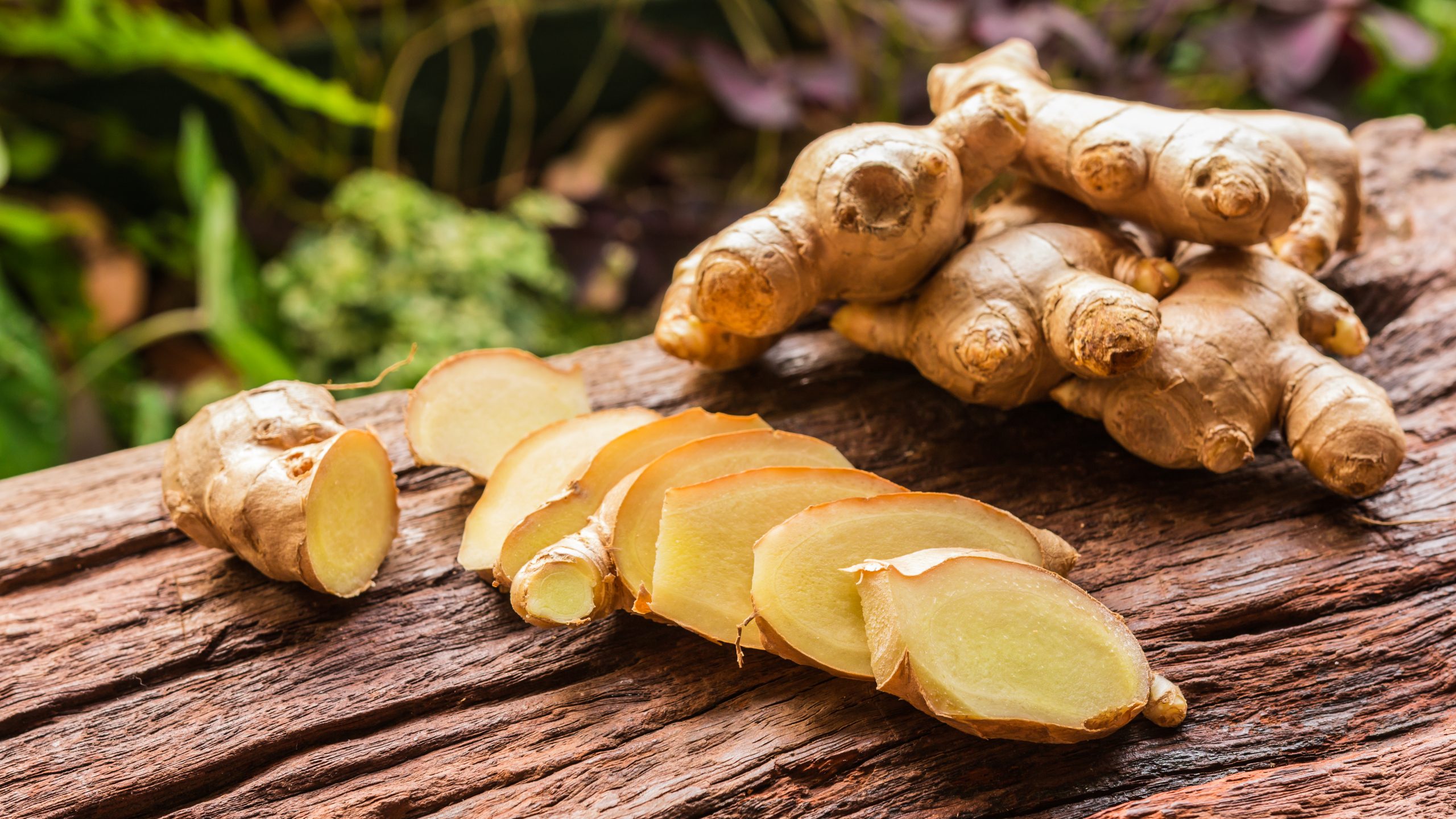Ginger: The Digestion All-Rounder

InterClinical eNews January 2018, Issue 75
In this month’s issue, we look at ginger’s use as a digestive tonic. The rhizome of Zingiber officinale Roscoe, commonly called ginger, has been used for thousands of years for a wide range of digestive benefits and in more recent times it has proved an invaluable digestive herbal tonic in Western traditional herbal medicine.
Preclinical trials show ginger can assist gastric emptying and decrease gastrointestinal transit times. (1, 2) In vivo studies demonstrate a significant increase in the production of the fat-digesting enzyme lipase, as well as the sugar-splitting enzymes sucrase and maltase. In vivo studies also demonstrate a substantial stimulatory effect on the rate of synthesis of proteolytic (protein-splitting) enzymes, trypsin and chymotrypsin. Together these findings indicate likely enhanced digestion of disaccharides, lipids and proteins. (3, 4)
In in vitro studies, ginger exhibits promise as an inhibitor of glucosidase and amylase enzyme activity. It beneficially blunted the levels of glucose released from digesting refined carbohydrates such as white rice. (5)
Ginger shows positive effect on swallowing ability
In a recent pilot trial, ginger showed a significant restorative effect on swallowing ability in elderly populations.(6) Ginger tablets were administered at one and three percent strength to elderly populations. Both strengths assisted the production of Substance P, a component of saliva which helps assist the swallowing function. Increasing Substance P restored swallowing ability to a level comparable to healthy 20-year-old controls. (6)
In preclinical trials, substantial improvements in intestinal function were found following administration of a 0.5 % solution of ginger administered to rats for 8 weeks. It increased the gastrointestinal brush-border membrane fluidity by lowering the membrane’s cholesterol to phospholipid ratio. This ultimately resulted in improvements in microvilli length and area, effectively increasing the absorptive surface of the small intestines. (7)
A recent meta-analysis of ginger and metabolic effects showed ginger significantly lowers triglycerides and fasting blood glucose levels compared to controls, P < 0.05. (8)
Overall, there is high-quality evidence that ginger has a beneficial effect on triglycerides, blood sugar levels and promising evidence of its ability to help improve swallowing function in the elderly. There is also preliminary evidence of an ability to increase the secretion of a plethora of digestive enzymes, improve gastrointestinal transit times, and facilitate blood sugar normalisation by inhibiting simple carbohydrates and absorption.
REFERENCES
- Platel K, Srinivasan K. Digestive stimulant action of spices: a myth or reality?. Indian Journal of Medical Research. 2004 May 1;119(5):167.
- Lohsiriwat S, Rukkiat M, Chaikomin R, Leelakusolvong S. Effect of ginger on lower oesophagal sphincter pressure. Medical Journal of the Medical Association of Thailand. 2010 Mar 1;93(3):366
- Platel K, Srinivasan K. Influence of dietary spices or their active principles on digestive enzymes of small intestinal mucosa in rats. International journal of food sciences and nutrition. 1996 Jan 1; 47(1):55-9.
- Ramakrishna Rao R, Platel K, Srinivasan K. In vitro influence of spices and spice-active principles on digestive enzymes of rat pancreas and small intestine. Molecular Nutrition & Food Research. 2003 Dec 1;47(6):408-12.
- Abeysekera WK, Chandrasekera A, Liyanage PK. Amylase and glucosidase enzyme inhibitory activity of ginger (Zingiber officinale Roscoe) an in vitro study
- Abe N, Hirata A, Funato H, Nakai M, Iizuka M, Yagi Y, Shiraishi H, Jobu K, Yokota J, Moriyama H, Ukeda H. Swallowing Function Improvement Effect of Ginger (Zingiber officinale). Food Science and Technology Research. 2015;21(5):705-14.
- Prakash UN, Srinivasan K. Beneficial influence of dietary spices on the ultrastructure and fluidity of the intestinal brush border in rats. British journal of nutrition. 2010 Jul;104 (1):31-9.
- Jafarnejad S, Keshavarz SA, Mahbubi S, Saremi S, Arab A, Abbasi S, Djafarian K. Effect of ginger (Zingiber officinale) on blood glucose and lipid concentrations in diabetic and hyperlipidemic subjects: A meta-analysis of randomized controlled trials. Journal of Functional Foods. 2017 Feb 28;29:127-34.
Copyright InterClinical Laboratories 2018, 2020
